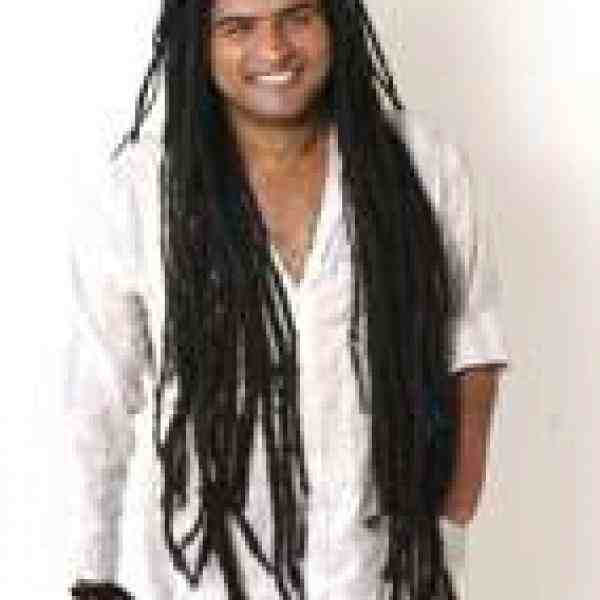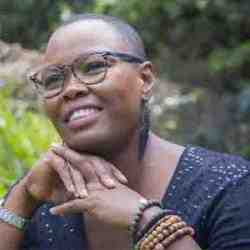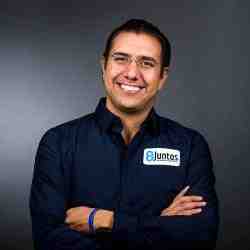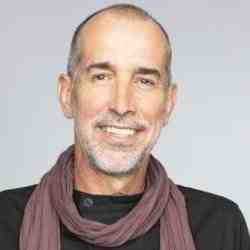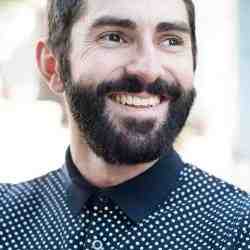Introduction
For Ryadh Sallem, being disabled is a relative concept—defined as much by a state of mind and societal prejudice as by physical incapacity. As every individual faces limitations but also possesses unique talents, Ryadh is redefining the concept of what it means to be “handicapped” by bringing the non-disabled to the world of the disabled and is working to eliminate exclusion.
The New Idea
Ryadh believes disabled people can be changemakers and positive role models. The handicapped can demonstrate values and ways of thinking based on the strength of their achievements and dedication to a chosen discipline or activity. To this end, Ryadh has created educational programs and sports clubs where the disabled are recognized for their abilities rather than their limitations. Ryadh strongly believes the disabled are limited as much by a lack of societal understanding and integration as they are by their physical condition, and is leading an awareness campaign to reverse the societal paradigm in which those with disabilities are viewed as incapable, dependent victims who live on the fringes of society. Ryadh stresses that being “disabled” is a condition we may all experience one day through sickness, accidents or old age and that many of the causes of disability such as risky behavior or bad food habits are preventable. He emphasizes that for many, being disabled means little more than being limited in a particular way at a particular moment in time. Today, most international bodies no longer consider people handicapped but rather, people in “situations of handicap”. In other words, many disabilities are not permanent incapacities but rather difficulties that individuals face that are accentuated in an environment ill-equipped to support them. Ryadh demonstrates that the history of human development is but a long list of ways we have found to compensate for our limitations. Without belittling the plight of the handicapped, Ryadh de-dramatizes disability and sheds a more positive light on their situation. His positive message is that limitations can and need to be overcome so that society works well for all.Ryadh also promotes the integration of the non-disabled into the world of the disabled. In particular, he was the first to promote the integration of players in French wheelchair basketball. Thanks to his efforts, the practice is encouraged from local clubs to the championship games. He creates regular opportunities for non-disabled people to enter the “disabled world” by helping them to focus on what they share rather than their differences.
The Problem
A recent study carried out by the National Institute for Statistics and Economic Studies reveals that between 1998 and 2002, over 40 percent of the French population was in a situation of “handicap”. Of 22.5 million people, only 3.5 million benefited from an administrative recognition of their disability. Other research indicates that the plight of the disabled is as much a result of society’s inability to adapt and integrate this population as it is a result of the individuals’ limitations.In France today, the disabled continue to face serious problems of exclusion despite regular efforts by the government to legislate on the subject. Since the beginning of the last century—and particularly since the end of the first world war which left hundreds of thousands disabled—various laws have dealt with the recognition of handicapped people, their rights, the public financial aid available to them, their right to employment and accessibility to public places. However, these laws have failed to resolve the problem of exclusion, and have tended to encourage the marginalization of people seeking assistance rather than encouraging them to take responsibility for themselves.That problems of exclusion and integration are still widespread is due less to funding deficiencies than that most legislation has been directed to financial support and legal recognition. Beyond what can be done to facilitate the mobility of disabled people, many current difficulties are sustained by prejudice and misconceptions. That a disabled person is “different” is often enough to incite fear and misunderstanding which, deliberately or not, naturally fosters exclusion. Hence, in societies where many levels of protection are already in place, changing the mindset of non-disabled people is potentially the most important factor of change for improving the condition of the disabled.Most organizations promoting the cause of the disabled simply consider it sufficient to emphasize the difficulties of living with a handicap and they often encourage a sentiment of guilt or sympathy to their audience. They most often see their role as lobbying for improved or additional privileges and are content for the disabled to remain victims. They do not see their role to be the encouragement of understanding and dialogue, of building bridges towards integration in mainstream society or changing mindsets.As a result, the disabled live in a segregated world. This has been particularly visible when it comes to sports and competition. For instance, Olympic and Paralympics games never happen in the same time. Sports clubs and competitions never include handicapped sports because in France people think of “real sport” as completely separate from “handisport” which is considered as belonging to the social sector. As a result, great handisport champions never get the same social recognition from the state and the public, even when they bring back home more medals than their non-disabled counterparts.Even sport trainers for fully able athletes do not know how to deal with the disabled. Their misunderstanding and misconceptions about their abilities and needs actually contribute to many young disabled people choosing to stay at home rather than take risks and go and live their own lives.
The Strategy
Ryadh and his association CAP-SAAA work at three different levels: to empower the disabled, raise awareness and the level of education about disability among the non-disabled, and, integrate the non-disabled in the world of the disabled in professional sport in particular.The first level of Ryadh’s work focuses on the way the handicapped view themselves. He believes it is essential to replace the prevailing attitude of victimization and dependence among the disabled with ones of dignity, autonomy, and confidence. In his view, if the disabled want to assert their right to equality, they have a duty to show that they are capable of taking charge of their own lives. Ryadh provides opportunities through participation in the outreach and education activities of Cap-Classe and participation in organized sports like basketball. Using sport clubs as the core of his strategy, he progressively recreates social links through sports then changes the way handicapped people consider themselves by showing them what they can achieve and how they can fun at the same time. The second step is to provide mentors to new club members and help them understand that they can accomplish a good deal themselves—such as find a job, have a family, or launch their own businesses. Thanks to these living examples, people begin to think of themselves less as victims and take control of their own lives. Having experienced how strong and efficient this approach was in the Paris region, Ryadh is now moving to develop it on a national level. His strategy is to identify and designate through several networks (including national citizen organizations such as the Association des Paralysés de France and the Handisport Federation), the sports clubs for handicapped people which are ready to adopt this approach. The objective is to train these clubs and enable them to move from sports clubs into primary schools where they will develop prevention actions through the Cap-Classe project, the second pillar of Ryadh’s strategy.The Cap-Classe project, which Ryadh has been developing since 2003, revolves around the positive experience of what it means to overcome one’s handicaps. Alternating sports and games and demonstrations with more serious didactic exercises, Ryadh and his team break down the wall of misunderstanding and prejudice which separate the disabled from the rest of the world. With a start in Parisian and Paris Region’s schools, his Cap-Classes have spread to universities, medical schools, community centers, and businesses. Awareness of the loss of autonomy (much like the loss suffered during an illness or old age) is essential for a full understanding of the disabled. His aim is to foster empathy through shared experience and through recognition that those with disabilities are not so different. Each year, more than 5,000 children and young people benefit from his programs and he has signed an agreement to develop this program in the 600 primary schools in Paris over 4 years.However, Ryadh does not want to limit his work to Paris. He has started to develop this program in other places, such as Lyon (France’s second largest city) which will act as the catalyst for the region. His strategy to spread his program on a national level is closely linked to the development of the sports clubs he is designing. His vision is to have in every region of France a leading sport club with handicapped people who will go into the primary schools to set up this prevention program. In order to do that, and because the French education system is very centralized, Ryadh has signed a general agreement with the Ministry of Education.Finally, to promote co-education and coexistence, Ryadh founded the first wheelchair basketball league open to those without disabilities which now has chapters throughout France. What used to be called “handibasket” (from handicap and basketball) is now just called “wheelchair basketball”. “Wheelchair basketball” has simply become an alternative form of play. This shift in the lexicon is indicative of the change Ryadh wants to make: transforming the notion of handicap on every level. The French Ministry of Sport has found in Ryadh’s approach new ways to bridge the world of the disabled and non-disabled and have asked him to train all the regional sports managers to enable them to welcome handicapped people into their sports clubs and sports classes. Ryadh’s next goal is to facilitate access to sport for handicapped women. By creating the first 100 percent female club playing in a male championship, Ryadh is demonstrating that inclusion starts with welcoming everyone in a club. Once again, his strategy to spread this approach will be based on his local designated sports clubs. In 2001 Ryadh created the “Defistival,” (play on the French words défi [challenge] and festival), a festive gathering for the disabled and non-disabled that includes concerts, sports, and educational conferences. “Come with your differences, leave with your similarities!” With this slogan, Ryadh continues to promote interaction between the disabled and the general public—as well as between those with different types of disabilities. Each year, more than 10,000 people participate in “Defistival” and Ryadh is in the final stages of exporting the model to other countries including Belgium.Currently CAP-SAAA has two paid employees, but it has a robust network of volunteers which manages most of its programs. CAP-SAAA is 70 percent self-financed and external funding comes primarily from foundations. CAP-SAAA is now working to become more sustainable by increasing the number of presentations and services it sells to local businesses and communities.
The Person
Born in Tunisia, a thalidomide baby without limbs, Ryadh arrived in France at the age of 2. He had operations year after year to make him “ready for life”. Having spent his first 20 years in hospitals and rehabilitation centers, he discovered that the world was not prepared to include people like him. His childhood and adolescence were difficult but he found an outlet in sports. He swam competitively for 10 years and during that period won 15 titles in France. Later turning to team sport which he preferred, he began playing competitive wheelchair basketball and soon qualified for the French national team. He became triple European champion and represented France in the Paralympics in Atlanta. As he could never accept being thought of as incapable or dependent, Ryadh decided to consider his social security pension as a salary obliging him to contribute back to the community. At the age of 21, he co-founded the sporting Entente of France at L’Institut National des Invalides (National Institute of the Disabled). When he was 22, he created the Handithlon (a race with two events for the disabled: swimming and wheelchair race). Shortly after, he created a special car insurance plan for the disabled. Later, he restructured his mother’s four failing stores which had been mismanaged and were in debt. After returning the businesses to profit he sold off two of the stores to concentrate on baking, the activity which he considered to be the core business.Appalled by the exorbitant costs of products specially developed for the disabled, in addition to his main focus with CAP-SAAA, Ryadh has initiated work on the production of a universal wheel chair which will be inexpensive, widely available and manufactured with recycled material. He is also designing a marketplace for the disabled where in a centralized location they can purchase at competitive prices the specialized products and services they need.
